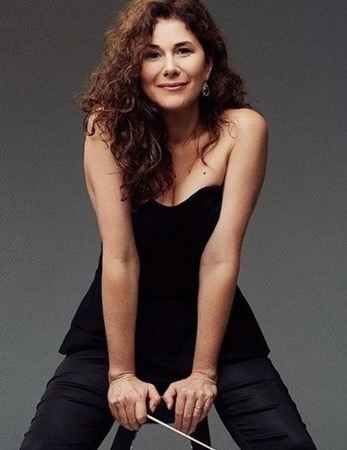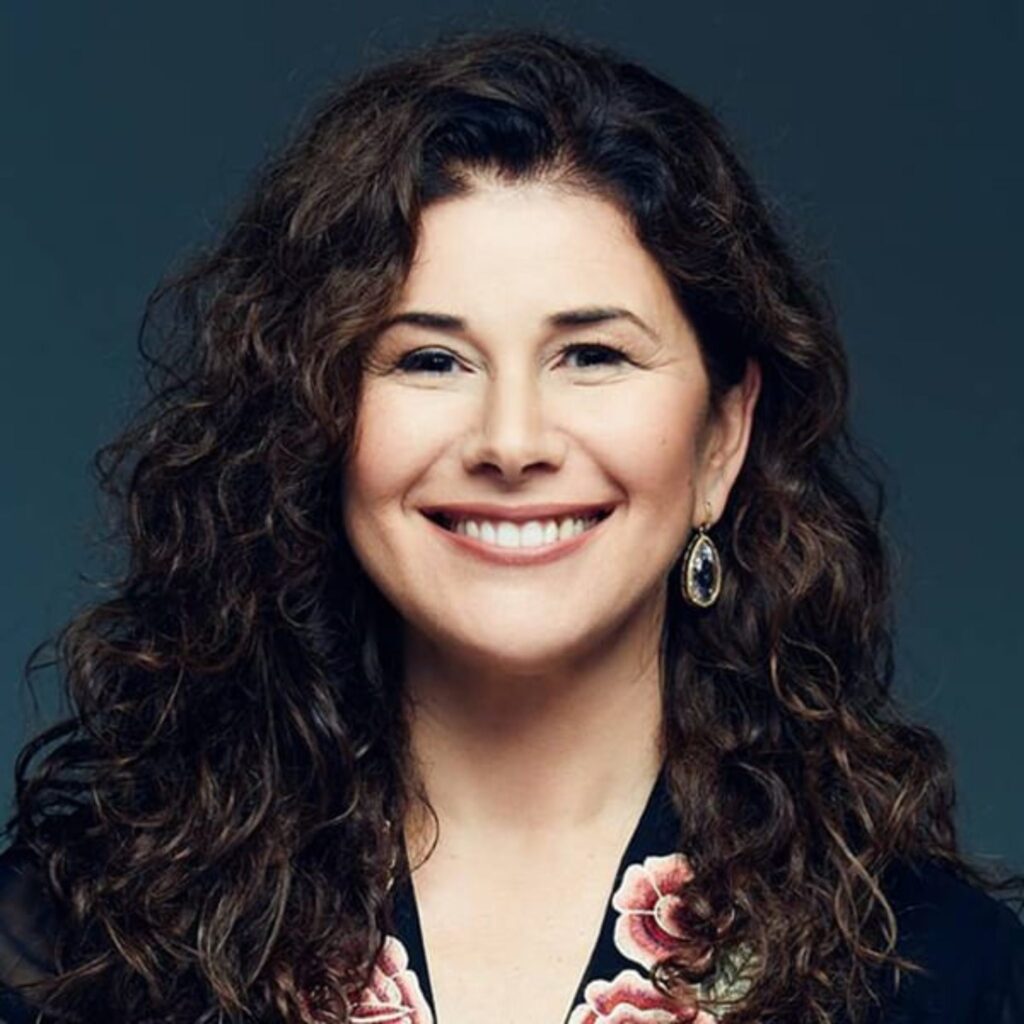Seraphic Fire conductor to explore music of 20 women composers, from Hildegard to Shaw
“We are used to hearing stories of women, the history of women expressed by men,” says Elena Sharkova. “But these are not all white composers and not all came from somewhere in Europe.”
The Russian-born choral conductor is speaking of “In Her Own Voice,” a survey of works by female composers across the ages and centuries to be performed by Seraphic Fire, which Sharkova will lead in concerts beginning Thursday night.
Sharkova previously led Seraphic Fire in 2017 and 2020. Those concerts were devoted to Russian choral music, spotlighting composers rarely performed in the West (i.e. Grigory Svirdov, Valery Gavrilin) as well as choral masterpieces by Tchaikovsky and Rachmaninoff and Russian folk songs.
When Sharkova returns to lead this week’s concerts, the programming will be very different. Given carte blanche by artistic director Patrick Quigley to design her concert’s repertoire, Sharkova has curated a program made up entirely of women composers to present “how we feel and how we think.”
For Sharkova, designing the program was both a journey and a colossal project. Speaking from California, she admitted that she felt “like a kid in a candy store, discovering all these female composers that I didn’t know.” Ultimately, she found the potential repertoire “an embarrassment of riches by women who broke barriers.”
The concerts will indeed cover a broad diversity of female creative voices. From theologian and mystic of the Middle Ages, Hildegard von Bingen (the first known female composer) to late 19th and early 20th century pianist-composer Amy Beach and recent Pulitzer Prize winner Caroline Shaw, the concert surveys multiple styles and eras. Along the way, works by Judith Weir, Chicago-based composer Stacy Garrop and the female Canadian folk-pop group The Wailin’ Jennys will be heard.
She was particularly excited to discover the music of Reena Esmail, an Indian-American composer who combines Indian and Western compositional techniques in her works. (Esmail’s A Winter Breviary will be performed at the concerts.)
Sharkova intends for the concert to trace through music the journey and stages of a woman’s life. Visions of a girl as a child, the joy and anxiety of becoming a mother, sacred and romantic predilections and the struggle for women’s rights will be encompassed in selections by 20 composers. (Sharkova said one Russian composer declined to have her work included on a U.S. program during the Russian war with Ukraine.)
A native of St. Petersburg, Sharkova’s musical journey began at the age of six when she was already studying piano and music eight hours a day. She would go on to study at Rimsky-Korsakov State Conservatory where she received a bachelor’s degree in music education and piano and a graduate degree in conducting. As a vocalist, she was a member of the Legis Artis Chamber Choir, touring throughout Russia and Europe and making recordings for the Sony Classical label.
The conductor comes from a rich and historic Russian choral tradition. “I hate to say it, but it was Stalin who made choral singing such a vital part of Russian life and culture,” Sharkova points out. Around 1920, the infamous Soviet dictator decided choral participation was the most important art form for the masses. Every building had to have a choir. Every factory had choral groups.
“Russian choral singing became such a force. There were choirs everywhere,” she says. The great Russian choral works and folk songs were hardly limited to the concert hall. To accommodate this important artistic function, there was massive training of choral directors.
Yet in Russia, women were only allowed to direct female choral groups. That and other limitations imposed on female choral conductors brought Sharkova to America in 1993. Searching for a fuller, richer artistic experience and repertoire, she received a second graduate conducting degree at Western Michigan University where she studied with Craig Arnold, who proved an important influence. She held academic positions at WMU and San Jose State University, teaching conducting and music theory to a new generation, before devoting herself to a full-time conducting career.
Sharkova is presently choral director for Symphony San Jose and managing director of the Cantabile Youth Singers of Silicon Valley where she directs 7-18 year old choir members.
Sharkova looks forward to her reunion with the vocalists of Seraphic Fire. “Seraphic Fire brings phenomenal artistry, scholarship and knowledge of style infused with personal feeling and emotion,” she said. “They give the best of themselves vocally, supported by the beauty of their sound.”
Although she feels the program, in its sheer variety of styles, will challenge the singers “to constantly switch gears,” she believes “no other ensemble has such high technical standards and love for singing. There is Seraphic Fire and then, there is the rest of the world.”
Viewing her multi-faceted career to date, Sharkova feels she has “lived a full life” as choral director, programmer, teacher, singer and part of an artistic team. “Music speaks to my heart and spirit,” she says. She hopes that, in her lifetime, “the musical world will stop being a gender-oriented profession” and programs like the one she will present in South Florida will be less of a rarity.
Elena Sharkova conducts “In Her Own Voice” with Seraphic Fire 7 p.m. Thursday at Vanderbilt Presbyterian Church, Naples; 8 p.m. Friday at Church of the Little Flower in Coral Gables; 7:30 p.m. Saturday at All Saints Episcopal Church in Fort Lauderdale; and 4 p.m. Sunday at All Souls Episcopal Church in Miami Beach. seraphicfire.org
Posted in Articles
Leave a Comment
Wed Jan 17, 2024
at 2:05 pm
No Comments







